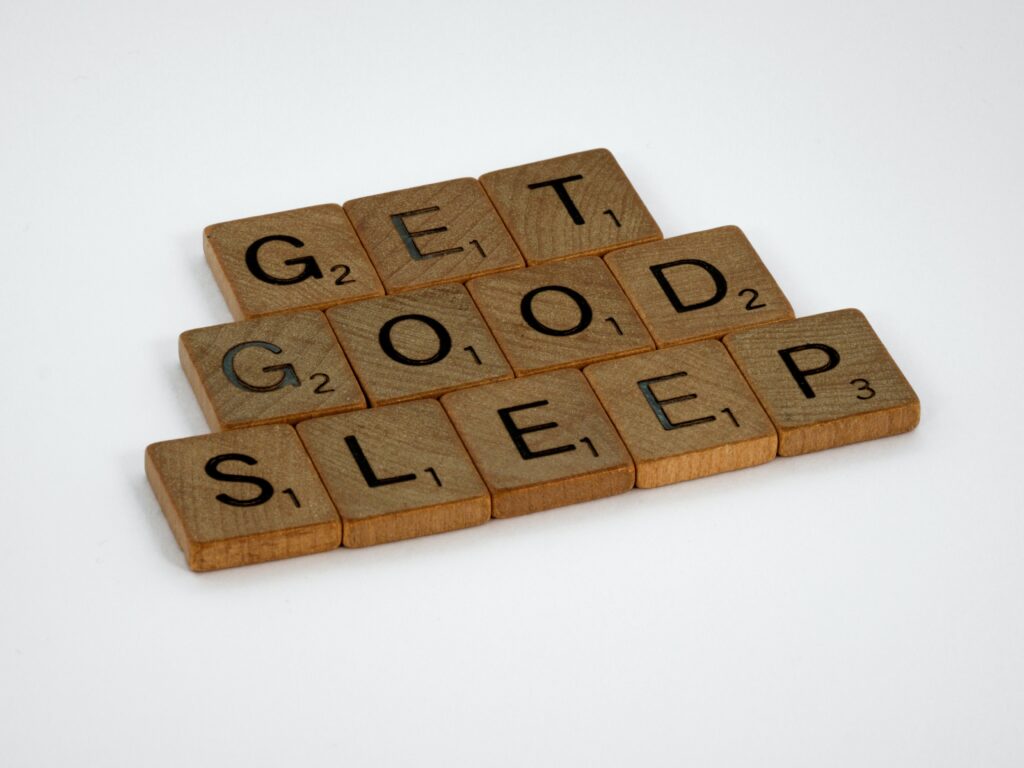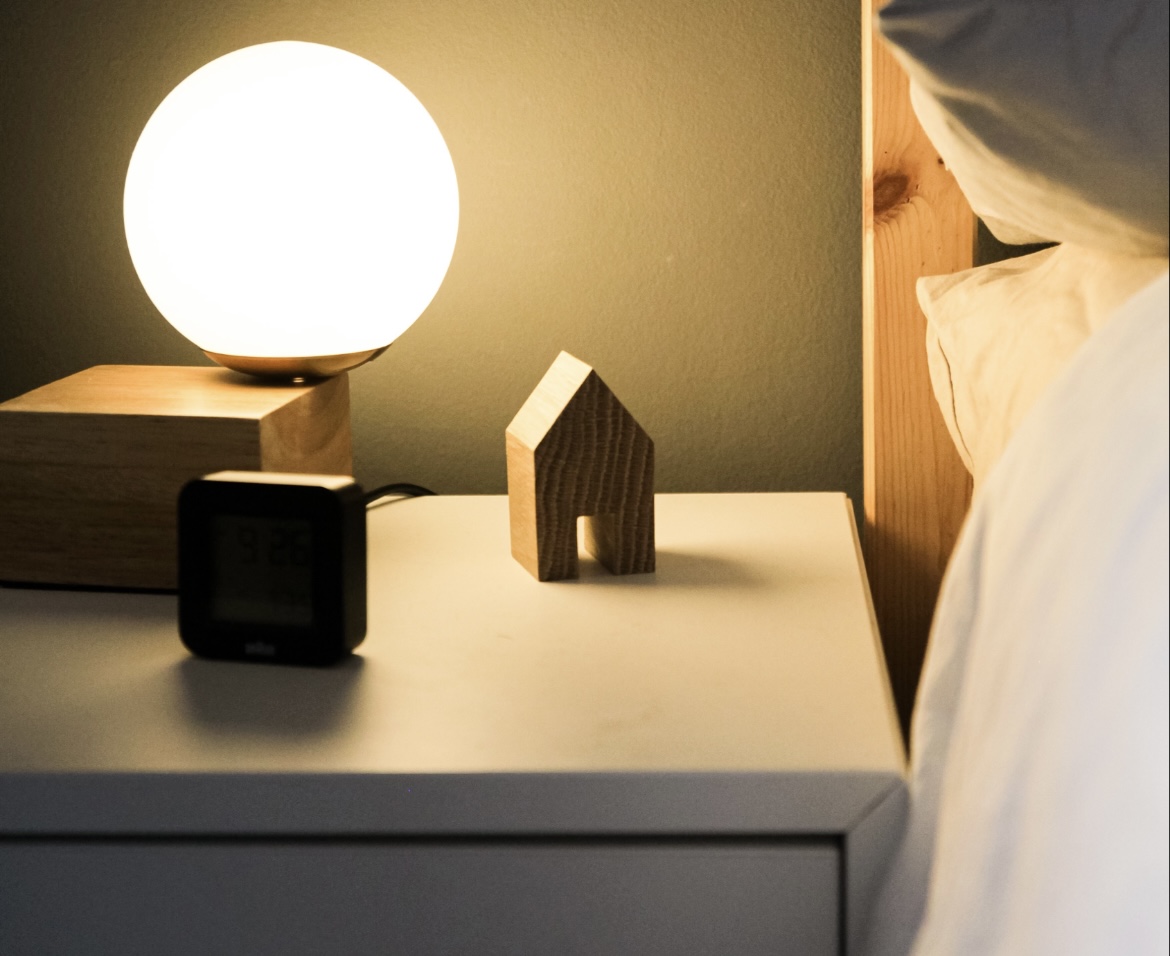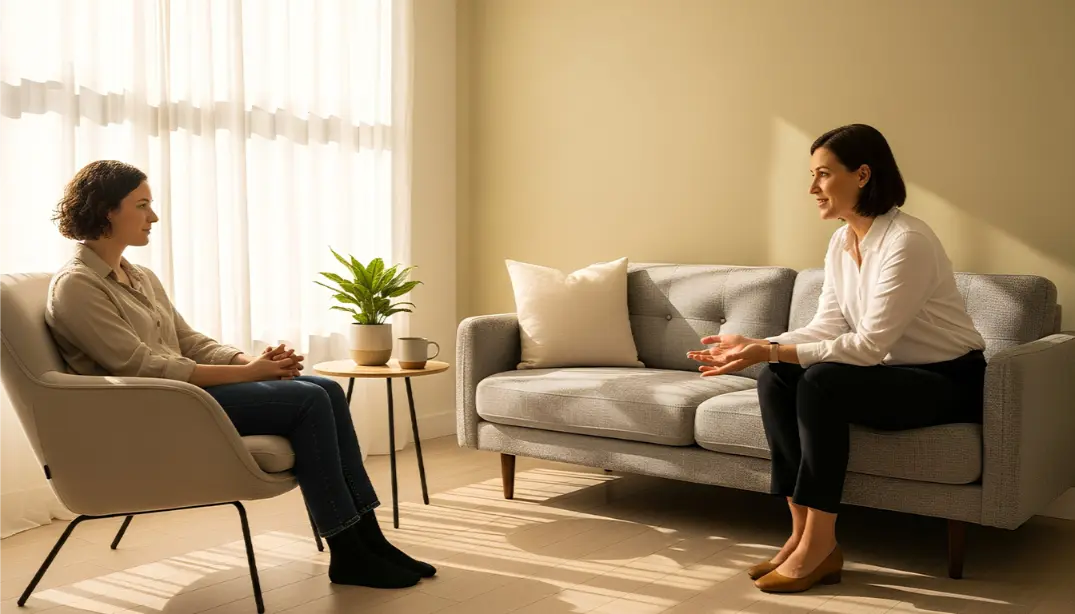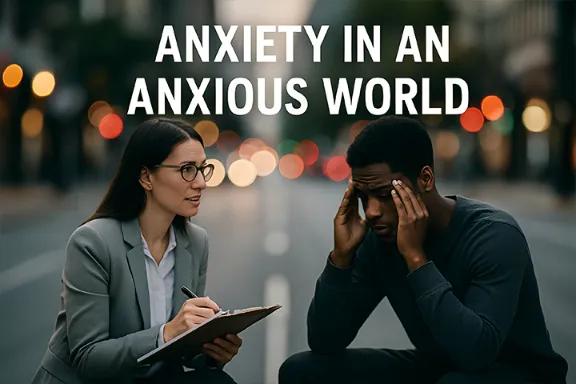We live in a culture where productivity has become the expectation. Balancing family, work, hobbies, friendships, exercise, other social engagements, maybe a side hustle… And we, famously, have 24 hours daily – 168 hours a week – to get it all done. So we prioritize. What can we cut? What is less important? What can be shifted to another day… week… month… year?
Ads and social media abound with “the solution” – sleep. If we sleep less, we have more time for everything else. Products promise improved sleep so you can sleep less. Hacks are offered for how to get by with less sleep. I recently saw an advertisement that promised that their product would improve your sleep quality so you would need only 6 hours of sleep a night. There are stories about people needing only 2 or 3 hours of sleep to be among the top contributors. So how much sleep do we need?
How Much Should You Sleep?
The research is pretty clear. Even with good quality sleep, adults need at least 7 hours of qualitysleep a night (CDC: How Much Sleep Do I Need?) and children and teens need more. Of course, there might be some individual variability in how much sleep we need, which further varies depending on lots of factors (e.g., activity level, health conditions). However, a lot of people – about 40% of adults (https://www.cdc.gov/sleep/data-and-statistics/Adults.html) – are doing with less sleep than what is recommended. If so many do so, can it really be that bad to consistently sleep less than what research consistently demonstrates we need? What is the cost of not getting enough sleep on a regular basis?
Sleep and Health
We live in a time where chronic illness and mental health problems seem to be soaring. People are struggling with concentration and attention, experience difficulties with anxiety and regulating their emotions, deal with so-called lifestyle illnesses like diabetes and heart problems, and experience mood disorders and suicidality. There are numerous articles out there showing the link between sleep and various physical and mental health problems and the research is uniform in its claim that getting enough sleep not only improves life but can also save lifes.
As a psychologist, I have spent years working with clients who have struggled feeling like their emotions, thoughts, and mood are out of their control. Experience has shown me that among the first things I should ask about from any client is how much they sleep and what their quality of sleep is. I still remember the story of one client who told me they slept 3 hours a night, that they thought about killing themselves every day, always felt anxious, and struggled finding any meaning with life. After consistently getting closer to 7 hours of sleep most nights, the thoughts of suicide went away, the anxiety was more manageable and they were reconnecting with friends, family and interests. Why did they sleep 3 hours a night? They felt pressured to work more, study more, to do more and do better. Meanwhile, that decision hurt that person’s health
in ways that were profound. It was not easy for them to re-prioritize sleep, but I would say having an almost complete reversal of symptoms by making that decision probably saved their life.
So clearly, sacrificing sleep does not help your health and affects your ability to concentrate and have sustained attention on the tasks you are trying to accomplish. But that’s not all there is to productivity, though? Right?
Sleep, Learning and Memory
If you think about all the information you have to absorb during the day and all the ways you have to use that information, you might realize how great of a role learning and remembering plays in your everyday life. So what happens to your brain when you sleep?
During sleep, your brain cycles through different phases of activity. These stages play different roles in how your brain processes information. First, if you get a good night’s sleep, it helps your brain to more easily learn something new the next day. Second, when you sleep, your brain starts going over what you learned that day and decides what to keep or let go, strengthening some memories. It will also – as long as you get REM sleep – create pathways that link different
memories together. This helps improve problem solving the next day. Your brain goes through this process with both factual information AND with the emotions you have experienced throughout the day. This is the reason that getting enough sleep can help reduce the intensity of emotions and make it easier for you to deal with emotions the next day.
A note on REM sleep: this is the last stage of sleep and the stage of sleep most associated with dreaming. It can take 2-3 hours to get into REM sleep when you first go to sleep. The longer yousleep, the more often you return to REM sleep as the proportion of time spent in each of the sleep stages changes over a 7 to 9 hour sleep period. This is also the reason that as you get closer to waking up, you are more likely to remember your dreams.
How to Hack Your Sleep
Clearly, sleep is essential. It helps our physical and mental health. It makes it easier for us to deal with thoughts, emotions, and mood changes during the day. It makes it easier for us to learn and later recall and use that information. And the research is also clear that getting at least 7 hours of sleep is important regardless of your age with more being needed for children and teens. So that’s a good starting point:
Schedule Your Sleep
Knowing you should aim for at least 7 hours of sleep – that is being asleep not just in bed – schedule when you should go to bed and when you should get up. If you know you have to be up at 6 am to get ready for work, make sure you are in bed and asleep by 11 pm. And if you need more like 9 hours of sleep a night, aim to get to sleep by 9 pm.
But most of us can’t just go to bed and be asleep. On average, it takes folks about 20 minutes to fall asleep. With our example, then, you might want to be in bed by 10:30 pm. For many, you might have lots of thoughts rolling around your head still and having some difficulties settling in. Creating a routine (often referred to as sleep hygiene) can be helpful to improve your sleep quality and ease of falling asleep as the body thrives on routines that help it predict what comes
next.
Feeling Sleepy
When you feel sleepy is the best time to try to fall asleep. And you are then ideally in your bed, not on the couch or in the chair in front of the TV. If you struggle falling asleep for more than 20 minutes, it can be a good idea to get out of bed for a while, keeping lighting dimmed and doing something that is soothing and relaxing. Avoid screens as that is likely to be stimulating your brain to think it is time to wake up. Instead, this might be a good time to read that book you find a bit tedious, meditate, or do a body scan or muscle relaxation activity. Then, when you feel sleepy, quietly get back into bed.
Avoid caffeine, nicotine, alcohol – or really any drugs
Caffeine and nicotine are both stimulants, which means they are likely to wake you up instead of making you feel drowsy. It’s a good idea to avoid any stimulants at least 4-6 hours before bedtime. Alcohol is often seen as relaxing and something that helps with falling asleep. Unfortunately, alcohol prevents you from getting into the later stages of sleep, thus disrupting the quality of sleep you get. So avoiding alcohol close to bedtime is a really good idea if you want to get a
good night sleep.
Your Bed is for Sleep and Sex
Many of us find ourselves using our beds for a variety of activities – eating, watching TV, scrolling on our phones, working, studying. This creates an association in your brain between your bed and activities you do while awake, weakening the association between your bed and sleep. To avoid this, use your bed only for sleep and sex so that when you get into bed to sleep, your brain and body remembers that now is the time to get some shut-eye.
A lot of research shows that people who exercise or engage in more physically demanding jobs often have an easier time sleeping so it might be helpful to incorporate movement into your day. Ideally, you want to do this a while before sleeping rather than immediately before you fall into bed as exercise wakes up your body.
Hot Showers and Baths
Many I’ve spoken to swear by a hot shower or bath to relax before bedtime. Not a bad idea – our body temperature naturally drops when we feel sleepy so that hot shower that heats your body up will help you start feeling sleepy when your body temperature starts dropping.
Your Bedroom
Speaking of temperature… Sleeping in a cooler room is associated with better quality sleep. Just make sure you have enough covers to stay warm. It is also helpful (for most folks) to make your bedroom quiet and dark. Consider how curtains and an eye mask might be helpful to keep unwanted light out of the bedroom. And investing in some good ear plugs might save your sleep from loud trash pickups, a snoring partner, or other interruptions. These strategies can be particularly helpful for those who sleep at other times than at night.
Naps
Try your best to avoid naps, especially if you then have a hard time falling asleep at night. When you are trying to improve your sleep quality and change your sleep schedule, it can be particularly tempting to take naps to make up for not having gotten enough sleep the night before. It is actually better to push through and not take the nap in that situation, instead getting up and doing something that can help you stay awake until bedtime. If you absolutely can’t do without a nap, set an alarm, place it across the room from you so you can’t just turn it off, and sleep for no more that 1 hour. Even better – do it before 3 pm so your body has a chance to get sleepy again.
Food and Sleep
Just like exercise is helpful for sleep, eating a well-balanced diet can help improve your sleep. And it is usually more helpful to eat a while before bedtime rather than having a heavy meal shortly before bedtime, which can affect your sleep quality. If going to bed on an empty stomach doesn’t work for you, have a light snack. Maybe a cup of herbal tea with honey or a warm cup of milk would be soothing and relaxing.
Journaling
If you are among those of us who rehash the day or plan for tomorrow as soon as your head hits the pillow, it might be helpful to address that before getting into bed. Including a few minutes as you are getting ready for bed to jot down whatever is on your mind might help your brain let go of whatever it is still mulling on. Are there tasks still left undone for tomorrow? Did something happen that you want to get off your mind before going to bed? Maybe you want to track some of the basics around your sleep like what helps you fall asleep and what gets in the way. Or maybe you want to write about your dreams. I particularly like jotting down any remnants of bad dreams that have stayed with me throughout the day from the night before because I don’t want to take them with me into another night.
Watching the Clock
How many of us haven’t struggled with sleep and looked at the clock over and over throughout the night? And then felt more and more anxious about not getting enough sleep? Avoiding watching the clock when you wake up is a good idea. If you wake up and struggle going back to sleep, go back to the “Feeling Sleepy” step and try some of those strategies.
Here is a helpful PDF handout on sleep hygiene:
https://www.cci.health.wa.gov.au/~/media/CCI/Mental-Health-Professionals/Sleep/Sleep—
Information-Sheets/Sleep-Information-Sheet—04—Sleep-Hygiene.pdf
When to Seek Help
By using the steps outlined above, you might find that you are getting better sleep and feel more alert and well throughout the day. For some, though, there might be underlying conditions that contribute to not sleeping well. It is always a good idea to speak with your primary care provider about potentially dealing with a sleep disorder like sleep apnea and maybe even have a home test or laboratory test to assess whether this is a concern for you. If you struggle establishing a good routine around your sleep, working with a mental health provider or life coach who can help you establish better sleep hygiene is a good idea. There are also several sleep disorders that can be addressed through mental health treatment so there is help out there when you feel like getting a good night’s sleep is impossible.
References:
https://www.cdc.gov/sleep/about_sleep/chronic_disease.html
https://www.cdc.gov/sleep/index.html
https://zapier.com/blog/sleep-and-productivity/
https://www.sleepfoundation.org/sleep-hygiene/good-sleep-and-job-performance
https://thesleepdoctor.com/sleep-hygiene/sleep-and-productivity-at-work/
https://newsinhealth.nih.gov/2013/04/sleep- it#:~:text=When%20you%20learn%20something%20new,new%20ideas%20while%20you%20sl umber.

Coping with and Conquering Anxiety Fears | Studies have shown that individuals who experience frequent anxiety often mis-perceive a situation or a …
Living with ADHD can often feel like running a marathon with untied shoes—always moving, often tripping, and rarely feeling caught up. At …
Life transitions have a way of reshaping the world around us, even when we see them coming. Whether the change is exciting, …
Anxiety has become one of the defining experiences of our culture. News headlines, social media, and even our entertainment are permeated with …








